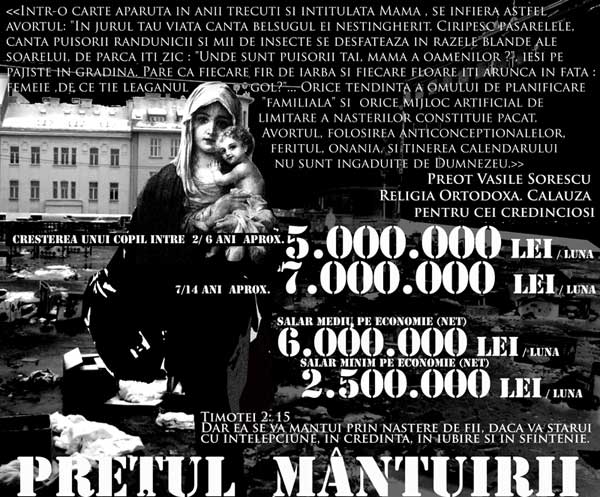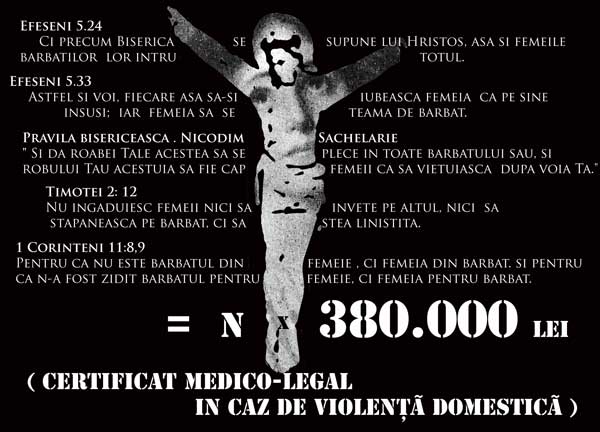– DON’T FORGET to:  (sign up here)
(sign up here)
– “8 martie – ziua femeilor militante” (2006) [ro]
“march 8th – day of women’s activism” (2006) [en]
– Global Women’s Strike 2007
Celebrating International Women’s Day around the world
INVEST IN CARING NOT KILLING! Women & girls do 2/3 of the world’s work, most of it unwaged. $1 trillion/year is spent on the military worldwide, more than half by the US. 10% of this would provide the essentials of life for all: water, sanitation, basic health, nutrition, literacy, and a minimum income.
The Global Women’s Strike network, with national co-ordinations in 11 countries and participating organisations in over 60 countries, is demanding the return of military budgets to the community, beginning with women the main carers of people and the planet. Women, and men who support our goals, take action together on 8 March, International Women’s Day, and throughout the year. In this way each grassroots struggle is backed by our collective power. …
– “Ending Impunity for Violence against Women and Girls”
Is the theme for International Women’s Day 2007
Learn more about how United Nations celebrate IWD
In 1975, during International Women’s Year, the United Nations began celebrating 8 March as International Women’s Day. Two years later, in December 1977, the General Assembly adopted a resolution proclaiming a United Nations Day for Women’s Rights and International Peace to be observed on any day of the year by Member States, in accordance with their historical and national traditions. For the United Nations, International Women’s Day has been observed on 8 March since 1975. The Day is traditionally marked with a message from the Secretary-General.
Why dedicate a day exclusively to the celebration of the world’s women?
In adopting its resolution on the observance of Women’s Day, the General Assembly cited two reasons: to recognize the fact that securing peace and social progress and the full enjoyment of human rights and fundamental freedoms require the active participation, equality and development of women; and to acknowledge the contribution of women to the strengthening of international peace and security. For the women of the world, the Day’s symbolism has a wider meaning: It is an occasion to review how far they have come in their struggle for equality, peace and development. It is also an opportunity to unite, network and mobilize for meaningful change.
Read more about the International Women’s Day:
* History of International Women’s Day
* “Engendering the Global Agenda: The Story of Women and the United Nations”, a book by Hilkka Pietilä
* UN Cyberschool Bus page about International Women’s Day
Previous years and themes:
2006: Women in decision-making
2005: Gender Equality Beyond
2005: Building a More Secure Future
2004: Women and HIV/AIDS
2003: Gender Equality and the Millennium Development Goals
2002: Afghan Women Today: Realities and Opportunities
2001: Women and Peace: Women Managing Conflicts
2000: Women Uniting for Peace
1999: World Free of Violence Against Women
1998: Women and Human Rights
1997: Women at the Peace Table
1996: Celebrating the Past, Planning for the Future
…



